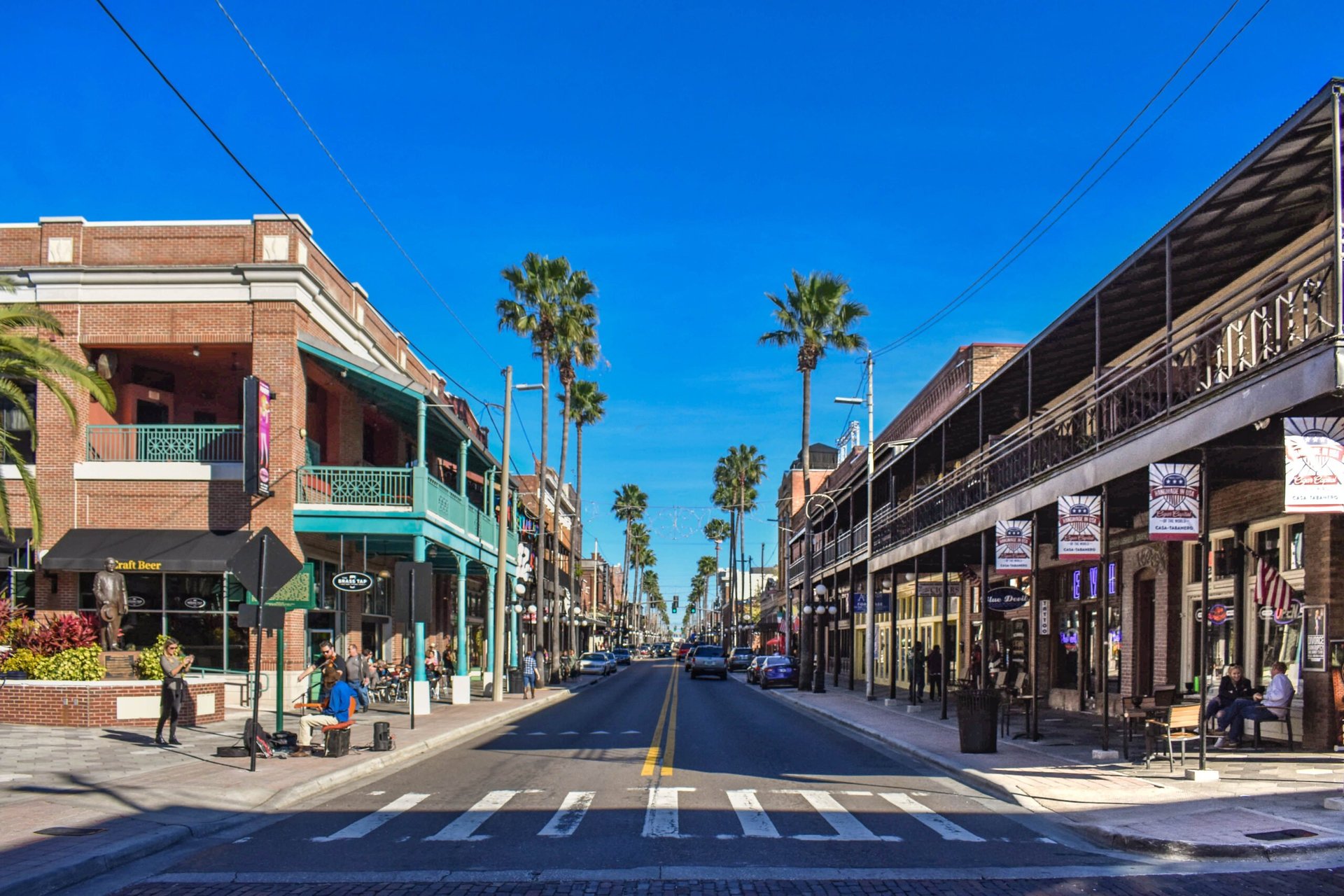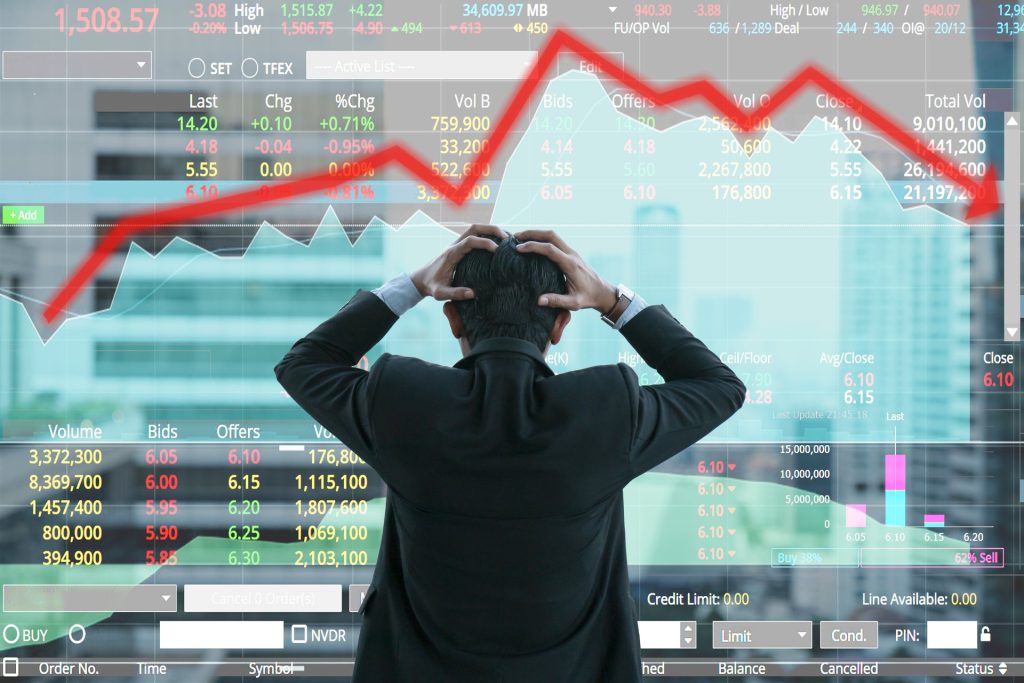Editor’s Note: This story originally appeared on Simply Business.
Despite economic headwinds in recent years, including high prices and interest rates, one bright spot has been a surge in new businesses. Across cities nationwide, aspiring and existing entrepreneurs are launching businesses at rates not seen in recent history.
New business applications have surged to unprecedented levels over the past five years.
Despite inflation and increased borrowing costs since 2022, applications have continued to exceed pre-pandemic norms, with 5.45 million applications filed in 2023. Early 2024 figures show a potential year-end total near 5.2 million.
Understanding which areas are experiencing new business growth is useful for both current and aspiring business owners.
High-growth areas often reflect favorable conditions such as supportive local policies, growing populations, and affordability, which can impact a business’s chances of success. This information allows business owners to assess where opportunities may be strongest based on recent activity.
Following is a breakdown of the metropolitan areas experiencing the largest surge in new business applications. This analysis was conducted by Simply Business — a small-business insurance marketplace — using 2019 and 2023 data from the U.S. Census Bureau. For more information, refer to the methodology section.
20. Nashville-Davidson-Murfreesboro-Franklin, TN

- Percentage change in new business applications (2019-2023): +58.8%
- Absolute change in new business applications (2019-2023): +13,486
- New business applications in 2019: 22,925
- New business applications in 2023: 36,411
- Estimated employer businesses created from 2019 applications: 1,817
- Estimated employer businesses created from 2023 applications: 2,433
19. Denver-Aurora-Centennial, CO

- Percentage change in new business applications (2019-2023): +60%
- Absolute change in new business applications (2019-2023): +29,140
- New business applications in 2019: 48,549
- New business applications in 2023: 77,689
- Estimated employer businesses created from 2019 applications: 3,672
- Estimated employer businesses created from 2023 applications: 4,383
18. Virginia Beach-Chesapeake-Norfolk, VA-NC

- Percentage change in new business applications (2019-2023): +60.9%
- Absolute change in new business applications (2019-2023): +11,561
- New business applications in 2019: 18,984
- New business applications in 2023: 30,545
- Estimated employer businesses created from 2019 applications: 1,366
- Estimated employer businesses created from 2023 applications: 1,807
17. Charlotte-Concord-Gastonia, NC-SC

- Percentage change in new business applications (2019-2023): +60.9%
- Absolute change in new business applications (2019-2023): +20,553
- New business applications in 2019: 33,727
- New business applications in 2023: 54,280
- Estimated employer businesses created from 2019 applications: 2,743
- Estimated employer businesses created from 2023 applications: 3,722
16. Miami-Fort Lauderdale-West Palm Beach, FL

- Percentage change in new business applications (2019-2023): +61.4%
- Absolute change in new business applications (2019-2023): +104,895
- New business applications in 2019: 170,869
- New business applications in 2023: 275,764
- Estimated employer businesses created from 2019 applications: 10,461
- Estimated employer businesses created from 2023 applications: 13,439
15. San Antonio-New Braunfels, TX

- Percentage change in new business applications (2019-2023): +62.6%
- Absolute change in new business applications (2019-2023): +14,390
- New business applications in 2019: 22,982
- New business applications in 2023: 37,372
- Estimated employer businesses created from 2019 applications: 1,921
- Estimated employer businesses created from 2023 applications: 2,612
14. Phoenix-Mesa-Chandler, AZ

- Percentage change in new business applications (2019-2023): +62.6%
- Absolute change in new business applications (2019-2023): +37,203
- New business applications in 2019: 59,475
- New business applications in 2023: 96,678
- Estimated employer businesses created from 2019 applications: 4,234
- Estimated employer businesses created from 2023 applications: 6,071
13. Memphis, TN-MS-AR

- Percentage change in new business applications (2019-2023): +63.7%
- Absolute change in new business applications (2019-2023): +9,549
- New business applications in 2019: 14,985
- New business applications in 2023: 24,534
- Estimated employer businesses created from 2019 applications: 1,126
- Estimated employer businesses created from 2023 applications: 1,522
12. Jacksonville, FL

- Percentage change in new business applications (2019-2023): +64.5%
- Absolute change in new business applications (2019-2023): +15,287
- New business applications in 2019: 23,688
- New business applications in 2023: 38,975
- Estimated employer businesses created from 2019 applications: 1,450
- Estimated employer businesses created from 2023 applications: 1,899
11. Raleigh-Cary, NC

- Percentage change in new business applications (2019-2023): +65.8%
- Absolute change in new business applications (2019-2023): +11,878
- New business applications in 2019: 18,040
- New business applications in 2023: 29,918
- Estimated employer businesses created from 2019 applications: 1,486
- Estimated employer businesses created from 2023 applications: 2,094
10. Louisville/Jefferson County, KY-IN

- Percentage change in new business applications (2019-2023): +66.6%
- Absolute change in new business applications (2019-2023): +8,277
- New business applications in 2019: 12,432
- New business applications in 2023: 20,709
- Estimated employer businesses created from 2019 applications: 988
- Estimated employer businesses created from 2023 applications: 1,367
9. Tucson, AZ

- Percentage change in new business applications (2019-2023): +67.1%
- Absolute change in new business applications (2019-2023): +5,793
- New business applications in 2019: 8,637
- New business applications in 2023: 14,430
- Estimated employer businesses created from 2019 applications: 615
- Estimated employer businesses created from 2023 applications: 906
8. Houston-Pasadena-The Woodlands, TX

- Percentage change in new business applications (2019-2023): +68.7%
- Absolute change in new business applications (2019-2023): +59,356
- New business applications in 2019: 86,351
- New business applications in 2023: 145,707
- Estimated employer businesses created from 2019 applications: 7,217
- Estimated employer businesses created from 2023 applications: 10,184
7. Austin-Round Rock-San Marcos, TX

- Percentage change in new business applications (2019-2023): +72.8%
- Absolute change in new business applications (2019-2023): +22,372
- New business applications in 2019: 30,735
- New business applications in 2023: 53,107
- Estimated employer businesses created from 2019 applications: 2,569
- Estimated employer businesses created from 2023 applications: 3,712
6. Orlando-Kissimmee-Sanford, FL

- Percentage change in new business applications (2019-2023): +75.3%
- Absolute change in new business applications (2019-2023): +36,857
- New business applications in 2019: 48,926
- New business applications in 2023: 85,783
- Estimated employer businesses created from 2019 applications: 2,995
- Estimated employer businesses created from 2023 applications: 4,180
5. Indianapolis-Carmel-Greenwood, IN

- Percentage change in new business applications (2019-2023): +77.5%
- Absolute change in new business applications (2019-2023): +18,225
- New business applications in 2019: 23,524
- New business applications in 2023: 41,749
- Estimated employer businesses created from 2019 applications: 1,855
- Estimated employer businesses created from 2023 applications: 2,638
4. Riverside-San Bernardino-Ontario, CA

- Percentage change in new business applications (2019-2023): +80.4%
- Absolute change in new business applications (2019-2023): +27,332
- New business applications in 2019: 34,014
- New business applications in 2023: 61,346
- Estimated employer businesses created from 2019 applications: 4,037
- Estimated employer businesses created from 2023 applications: 5,672
3. Tampa-St. Petersburg-Clearwater, FL

- Percentage change in new business applications (2019-2023): +84%
- Absolute change in new business applications (2019-2023): +41,205
- New business applications in 2019: 49,066
- New business applications in 2023: 90,271
- Estimated employer businesses created from 2019 applications: 3,004
- Estimated employer businesses created from 2023 applications: 4,399
2. Fresno, CA

- Percentage change in new business applications (2019-2023): +101.1%
- Absolute change in new business applications (2019-2023): +6,313
- New business applications in 2019: 6,243
- New business applications in 2023: 12,556
- Estimated employer businesses created from 2019 applications: 741
- Estimated employer businesses created from 2023 applications: 1,161
1. Sacramento-Roseville-Folsom, CA

- Percentage change in new business applications (2019-2023): +127.8%
- Absolute change in new business applications (2019-2023): +23,033
- New business applications in 2019: 18,023
- New business applications in 2023: 41,056
- Estimated employer businesses created from 2019 applications: 2,139
- Estimated employer businesses created from 2023 applications: 3,796
Methodology

To determine the locations with the largest increase in new business applications, researchers at Simply Business analyzed the latest data from the U.S. Census Bureau’s Business Formation Statistics.
Researchers ranked locations based on the percentage change in new business applications between the annual figures for 2019 and 2023. In the event of a tie, the location with the larger absolute change in applications between these years was ranked higher.
County data was aggregated to metropolitan areas using 2023 metropolitan area delineations. However, due to changes in county definitions between 2019 and 2023, Connecticut metros could not be included in the analysis.
Additionally, the U.S. Census Bureau publishes data on employer business formation rates (within four quarters of the business application) at the state level, but not at the county level. To estimate business formations at the county level, state-level formation rates were applied to county-level business applications statistics.



